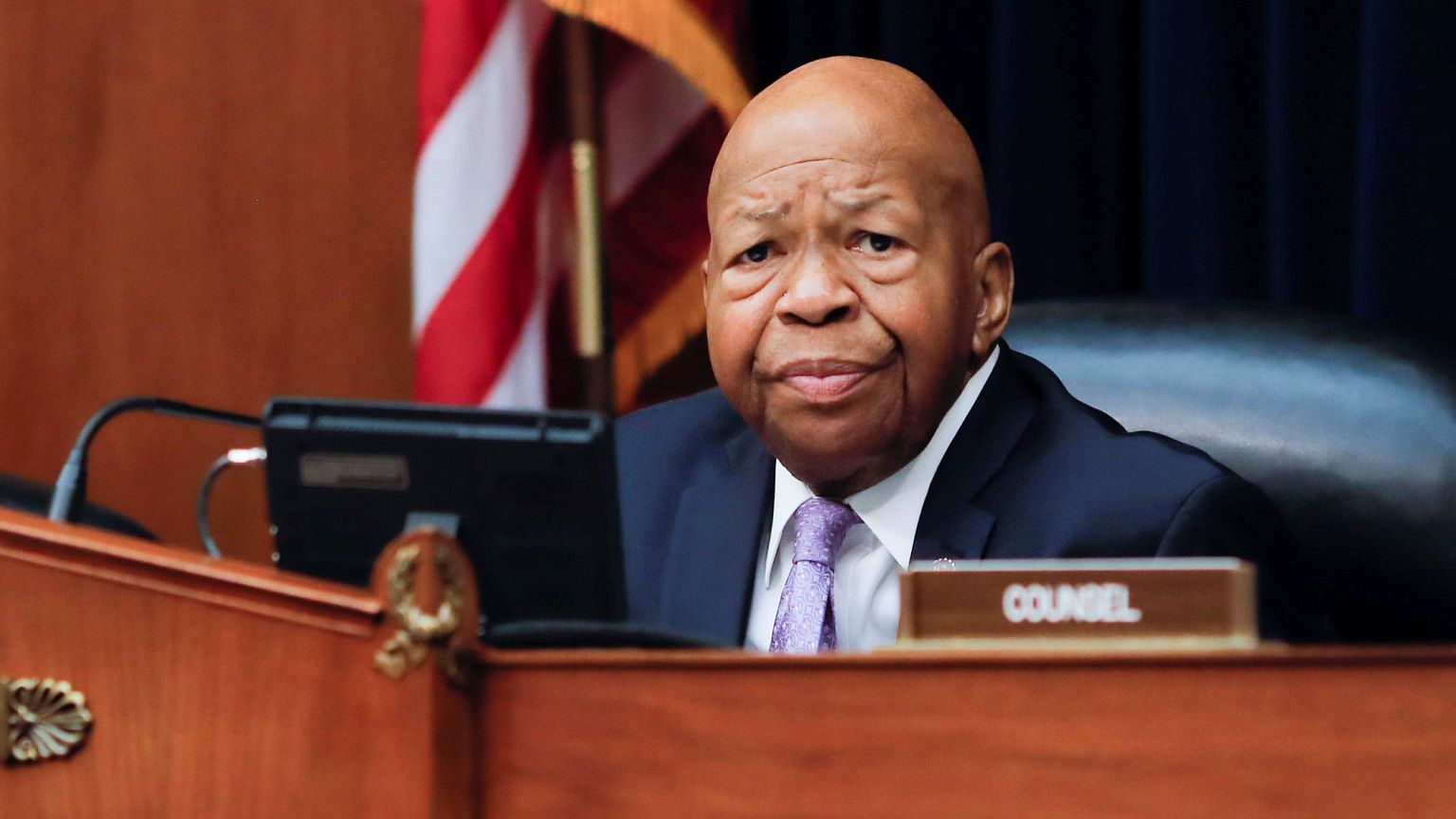One 2020 hopeful, Sen. Kamala Harris, said she wanted to hear from the special counsel before discussing the idea.
As Democrats sift through the redacted version of special counsel Robert Mueller's report, some lawmakers who previously downplayed the idea of impeaching President Donald Trump now say the investigation's findings may require them to initiate such proceedings in the House.
House Oversight Committee Chairman Elijah Cummings, D-Md., said in an interview on MSNBC's "Morning Joe" on Friday that the Mueller report shows that what Trump has done is "at least 100 times worse" than the actions that led to the impeachment of President Bill Clinton in 1998. Cummings previously had called talk of impeachment premature, but said Friday, "We may very well come to that very soon."
"We've got to go against this, we've got to expose it. A lot of people keep asking about the question of impeachment," Cummings said.
"But right now, let's make sure we understand what Mueller was doing, understand what Barr was doing, and see the report in an unredacted form, and all of the underlying documents," he said, referring to Attorney General William Barr.
House Intelligence Committee Chairman Adam Schiff, in an interview on MSNBC's "Andrea Mitchell Reports" Friday, said that the obstruction material laid out by the special counsel is "damning enough," but that Congress needs to take some time to digest the seriousness of the report to determine the right course of action.
"We certainly need to continue the investigative work to determine, are there other ways this president is compromised, or, are there other offenses that rise to the level of removal from office," the California Democrat said, responding to a question about impeachment. "But here we are less than 24 hours after the report, and I think we need as a caucus to have a discussion about what's the import of this and what's the way forward."
In a separate interview Friday on "Morning Joe," Sen. Richard Blumenthal, D-Conn., was asked if there were impeachable offenses in the Mueller report.
"There are clearly offenses," Blumenthal said. "And there may be impeachable offenses, there may be censurable offenses. I think what Congress needs to do now is continue the fact-finding."
House Speaker Nancy Pelosi, D-Calif., declined to comment on the Mueller report at a press conference at Northern Ireland's Parliament on Friday morning, saying she doesn't criticize the U.S. president while visiting another country on a congressional delegation trip. But she also said that Congress will "honor its oath of office to protect and defend the Constitution of the United States, to protect our democracy."
Rep. Ro Khanna, D-Calif, said Friday on Fox News that the decision on whether to pursue impeachment rests with Pelosi.
"There is only one person who matters — Nancy Pelosi," he said. "She sets the agenda for House Democrats. Every member of Congress has an opinion, but Nancy Pelosi is going to set the agenda. And she has said, let's have Mueller testify, let's have the committees do their work and gather evidence. But it is premature to be making any other judgments."
Several hours after the 448-page redacted report was released to Congress and the public on Thursday, talk of impeachment gathered steam among some rank-and-file lawmakers, including freshman Rep. Alexandria Ocasio-Cortez, D-N.Y., who announced on Twitter that she will sign on to an impeachment resolution introduced by Rep. Rashida Tlaib, D-Mich., in March.
House Judiciary Committee Chairman Jerrold Nadler, D-N.Y., who in March said he had a "high bar" for impeachment, also did not rule out such a scenario Thursday. His committee has the power to initiate an impeachment inquiry and proceedings.
Asked if holding Trump accountable means impeachment, Nadler said, "That's one possibility — there are others."
But other top Democrats like Pelosi and Senate Minority Leader Chuck Schumer of New York, mostly avoided the "I-word" in statements condemning the president's conduct as detailed in Mueller's extensive report.
Some Democrats said that impeachment would be too divisive, and that the issue of whether to keep Trump as president should be left up to voters in the 2020 election.
"In my view, there's an even better political process coming right down the road on almost the same time frame and that's the elections of 2020. I think that's where this decision should be made about the president's conduct with all this information out in the public," Sen. Angus King, an Independent from Maine who caucuses with the Democrats, told CNN Friday. "For Congress to go through an impeachment process would be, it would take probably 18 months, which would lead right up to the election. And it would be divisive."
On Thursday, House Majority Leader Steny Hoyer, D-Md., reportedly told CNN that "impeachment is not worthwhile at this point." Afterward, he appeared to walk that comment back, saying that "all options ought to remain on the table."
Articles of impeachment would require a simply majority to pass in the House, which is currently controlled by Democrats. The Senate, on the other hand, which has the power to remove a president who has been impeached through a two-thirds vote, is highly unlikely to consider that option because the chamber is controlled by Republicans. Only two presidents have been impeached in U.S. history: Clinton in 1998, and President Andrew Johnson in 1868. Neither was convicted in the Senate.
On MSNBC's "All in With Chris Hayes" on Thursday, Democratic presidential contender Sen. Amy Klobuchar of Minnesota dodged the question of whether Trump should face impeachment.
"Our job if there is impeachment brought, and that is up to the House, our job is to be the jury. So, I have been really careful about talking about what we would do if impeachment came before us," she said.
Another 2020 hopeful, Sen. Kamala Harris, D-Calif., did not rule it out.
"I think that there is definitely a conversation to be had on that subject, but first I want to hear from Bob Mueller," Harris told Hayes, "and really understand what exactly is the evidence that supports the summary that we have been given today."















